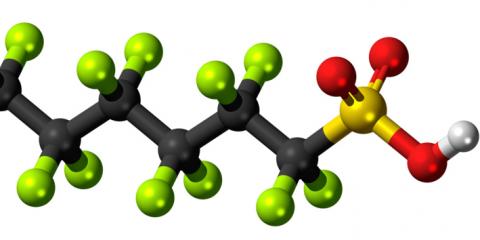Reaction: Study in Belgium finds PFAS in straws, including paper and bamboo straws
A research team in Belgium found perfluoroalkylated and polyfluoroalkylated substances (PFAS) in drinking straws. The research, published in the journal Food Additives & Contaminants, analysed the presence of these persistent and potentially harmful compounds in 39 types of straws purchased from different shops, supermarkets or fast food chains. These substances were most prevalent in paper and bamboo straws, followed by plastic and glass straws. They were not detected in stainless steel straws.

Marieta Fernández - PFAS pajitas EN
Mariana F. Fernández Cabrera
Professor at the University of Granada and researcher at the Cybernetics Centre for Epidemiology and Public Health (CIBERESP) and the Institute for Biomedical Research of Granada (ibs.GRANADA)
The study titled 'Assessment of poly- and perfluoroalkyl substances (PFAS) in commercially available drinking straws using targeted and suspect screening approaches', published in the scientific journal Food Additives and Contaminants, and led by Thimo Groffen and colleagues at the University of Antwerp (Belgium), has revealed the presence of toxic compounds (PFAS) in most of the 39 different types of drinking straws tested (paper, bamboo, glass, stainless steel and plastic).
Most European countries have adopted the European Commission's directive (2019) banning the use of single-use plastic utensils (straws, cutlery and other disposable items), which is why straws made from plant-based materials such as paper and bamboo are now available and are labelled as more sustainable and environmentally friendly than plastic straws. However, this study suggests that this may not be the case. Most of the paper straws tested (90%) contained PFAS. PFAS were also detected in 80% of bamboo straws, 75% of plastic straws and 40% of glass straws. No PFAS were detected in the stainless steel straws tested. The study is supported by sound data and methods, and the research group that conducted it has proven experience from its previous work.
The presence of PFAS in straws is, moreover, not surprising. PFAS are chemicals that are used in a multitude of everyday products, usually for non-stick, water, heat and/or stain resistance purposes. In this case, PFAS would be used as a water-repellent coating, preventing the straw from getting wet (and deteriorating).
PFAS are a family of synthetic chemicals (>1,000 different compounds) that have been shown to be toxic and persistent in the environment. For this reason, the European Chemicals Agency (ECHA) is currently discussing a proposal for a universal restriction of these compounds. The European Food Safety Authority (EFSA) has also taken a position on this issue by setting a tolerable upper intake limit [in September 2020].
Perfluorooctanoic acid (PFOA), banned since 2020, was the most common compound found in the straws tested. Trifluoroacetic acid (TFA) and trifluoromethanesulfonic acid (TFMS) were also detected. They are ultra-short chain PFAS that are highly soluble in water, which would allow them to be incorporated from the straw into the drink. The presence of PFAS in the straws (paper and bamboo) would indicate that they are not biodegradable products; nor are they suitable for human consumption, since, although the concentrations of PFAS found were low, they would add to the chemical load already present in the human body, which is exposed to a multitude of toxic compounds.
Pauline Boisacq et al.
- Research article
- Peer reviewed



